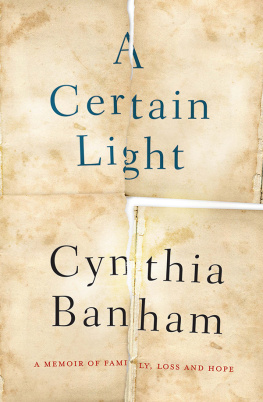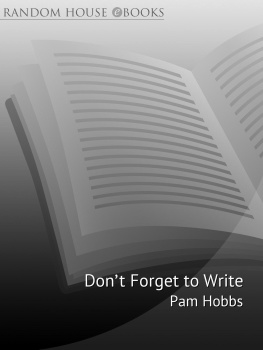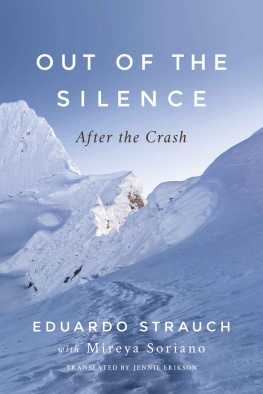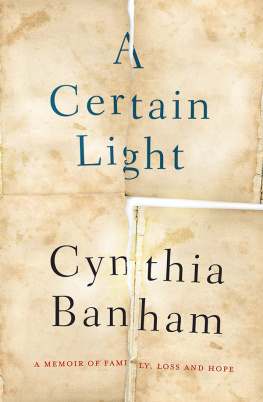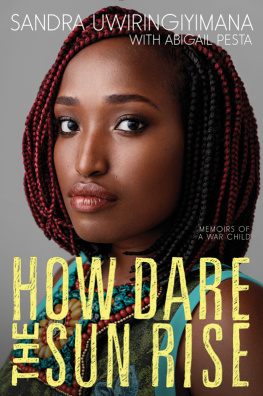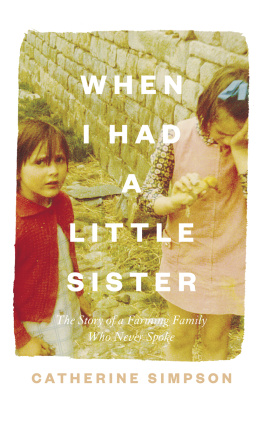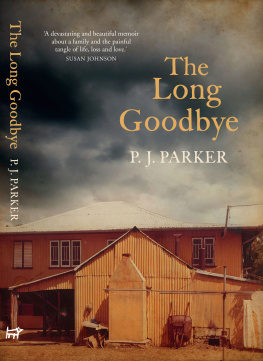
I WOULD LIKE TO THANK MY FIRST READERS OF, and believers in, this book: my husband, Michael, who has read it more times than anybody, my parents, Lori and John, and my siblings, Juliette, Anthony and Sebastian. Thank you for answering all my questions.
Special thanks must go to my mother for the many hours she spent translating different Italian texts for meand for letting me write her story. The texts she translated included various prisoners testimonies, songs and books, in Italian and the Trieste dialect, especially Faits Lemigrazione giuliana in Australia (19541961) and Polonis il no 122038 racconta.
I thank my aunt, Marie, for her support of my writing about her familys story.
Different friends read early versions of the book, and I would like to thank them for their feedback, especially: Emily Tannock (thanks also to her husband Adriano Tedde, who gave me advice and introductions), Lauren Ritchie and Miranda Forsyth.
I would like to thank my two workplaces, RegNet at the Australian National University, and POLSIS at the University of Queensland, for their forbearance in giving me time before starting new appointments to work on this book. My time at RegNet was especially helpful to the development of some of the more theoretical ideas explored in the book, and Id like to thank in particular Benjamin Authers, Michelle Burgis-Kasthala, Lia Kent and her husband Tom Davis for introducing me to writers I would not have known to read otherwise. Thanks also to Julia Wee for looking out for me at RegNet. Through my work at the ANU, I had conversations with different people about particular themes of this bookincluding the peerless and inspirational Hilary Charlesworthand I came away with a fresh perspective every time. Id also like to acknowledge helpful conversations I had with Danielle Celermajer and Kirin Narayan in the early days of writing.
A number of friends and colleagues helped me with translations, research and advice. I had many helpful conversations about forced labour with Christoph Sperfeldt, who also took the first photographs of Alkett for me. My Canadian friends, Natasha Tusikov and Blayne Haggart, found Amelias grave (I gave them the Sydney Swans). Aureliana Di Rollo helped me to obtain some of Alfredos military records in Italy. Grazia Micciche helped me to understand Umberto Sabas poetry and educated me in twentieth-century Italian film. Gabrielle Hooton and Marija Taflaga carried out research for me at the National Library of Australia. Id like to thank Gabrielle, especially, for being there for me since the first day I arrived in the press gallery in 2001; she is still answering my questions about Parliament sixteen years later. My translators included Alessia La Cavera, who translated Avagliano and Palmieris Gli Internati Militari Italiani: Diari e Lettere dai Lager Nazisti: 19431945. Dario Di Rosa translated Hammermanns Gli Internati Militari Italiani in Germania 19431945 and some of Alfredos papers. Mareike Riedel undertook research in Germany and also translated Schlickeisers Borsigwalde Einst und Jetzt: Wohen und Industrie; Schrages und man schickte uns in die Baracken: Zwangsarbeit in Berlin-Reinickendorf 19391945. Ein verdrngtes Kapitel deutscher Zeitgeschichte; and Gepperts Vom Verbundeten zum Verrater: Die italienischen Militarinternierten 1943 bis 1945. Milena Selivanov researched displaced persons and other aspects of Amelias life in Italy, Germany and Switzerland. She also translated Sanfilippos Per una storia dei profughi stranieri dei campi di accoglienza e reclusione nellItalia del Secondo Dopoguerra; Fauris Storia Economica delle Migrazioni Italiane; and Milettos Istria allo Specchio: Storia e Voci di una Terra di Confine.
Genealogical and other research was carried out for me by Ancestry ProGenealogists in the United States; Facts & Files Historical Research Institute Berlin in Germany; and Rene Nilsson and Raquel Mendelow in the United States.
Id like to thank Paul Angerer, who showed us around Klagenfurt (and to Barrie Cassidy, for the introduction), as well as the men at the Museo Nazionale DellInternamento, especially General Maurizio Lenzi, and the staff at the Nazi Forced Labour Documentation Centre in Berlin for explaining the history of the IMIs and the significance of my grandfathers artefacts. Thanks also to Massimo Dapporto.
To my relatives in Italy: thanks to Gloria for allowing me to bring home her collection of photographs of Amelia; to Anna, Gigi, Andrea and Giuliana for sharing their memories of Alfredo and Amelia; to Romana and Rosie for lending me Amelias diary extract; to Armando for his kindness; and to Vera for her patience and help.
Thanks also to Sue Dale.
There are many medical professionals from Royal Perth Hospital whom I would like to acknowledge, who did so much it is impossible ever to thank them adequately. This seems an appropriate place to try. To Professor Fiona Wood and her team, the doctors, nurses, physiotherapists (especially Dale Edgar who, along with Fiona, answered many questions about my medical treatment for this book), occupational therapists, prosthetists and others from RPHthank you for everything you did for me. Thanks also to the medical professionals who have continued to look after me in Canberra (and Wollongong), including Dr Chris Katsogiannis and Melissa Parker and all the other doctors, nurses, physiotherapists, OTs and prosthetists. Thanks also to Lanette Gavran.
I would also like to thank my literary agent, Gaby Naher (and Paul Daley for the introduction), and publisher Allen & Unwin, especially Annette Barlow and Angela Handley, for their patience, sensitivity, encouragement and support of this book. Thanks also to Ali Lavau for her thoughtful and careful editing and to Sandy Cull for her wonderful cover design.
I cannot ever know, but I hope that my nonno, Alfredo, and his sister, Amelia, would think that what I have written is okay.
My son was too young to read this book, but he was aware I was writing it, and always called it the Love Book. I hope, when he gets older, he thinks its okay too.
Lastly, I apologise for any errors, including of translation; the responsibility is mine.
PROLOGUE
See M. Hirsch, The Generation of Postmemory: Writing and Visual Culture After the Holocaust, New York: Columbia University Press, 2012, pp. 11, 34.
CHAPTER 1 THE BOXES
C. Delbo, trans. R.C. Lamont, Auschwitz and After, 2nd edn, New Haven: Yale University Press, 1995, 2014, p. 239.
E. Simpson, in W. Zinsser (ed.), Inventing the Truth: The Art and Craft of Memoir, New York: Mariner Books, 1998, p. 98.
See E. Hoffman, After Such Knowledge: A Meditation on the Aftermath of the Holocaust, London: Vintage, 2004, 2005, p. 41.
P. Brickhill, Reach for the Sky, New York: Bantam Books, 1954, 1978, p. 334.
A. von Plato et al., Introduction in von Plato et al. (eds), Hitlers Slaves: Life Stories of Forced Labourers in Nazi-Occupied Europe, New York: Berghahn Books, 2010, p. 8.
P. Filipkowski and K. Mado -Mitzner, You cant say it out loud. And you cant forget: Polish experiences of slave and forced labour for the Third Reich, in von Plato et al., p. 84.
CHAPTER 2 TRIESTE
J. Morris, Trieste and the Meaning of Nowhere, London: Faber & Faber, 2001, p. 8.
U. Saba, Avevo, in U. Saba, trans G. Hochfield and L. Nathan, Songbook: The Selected Poems of Umberto Saba, New Haven: Yale University Press, 2008, pp. 4689.
Richard Ellmann (ed.), Selected Letters of James Joyce, London, Faber & Faber, 1975, 1992, p. 193; J. McCourt, The Years of Bloom: James Joyce in Trieste, 19041920
Next page
